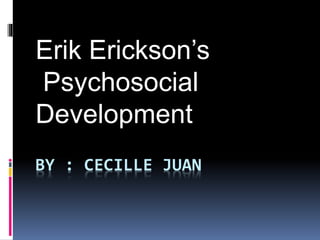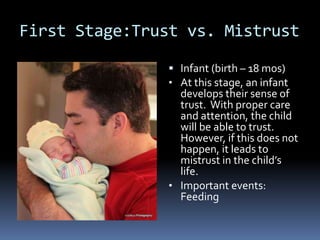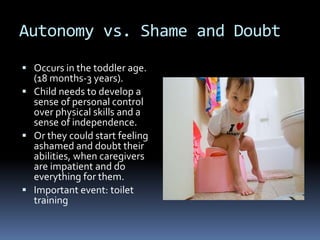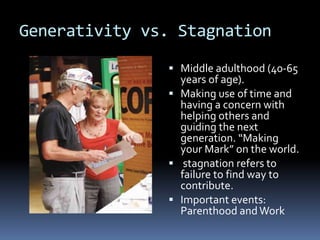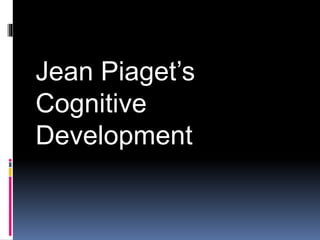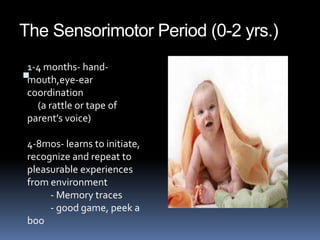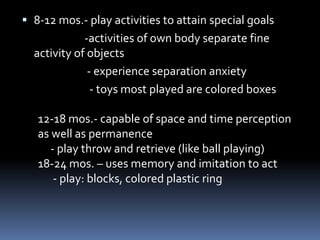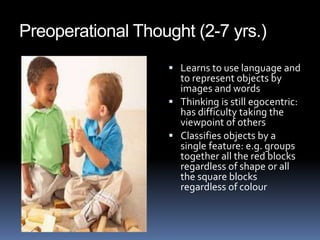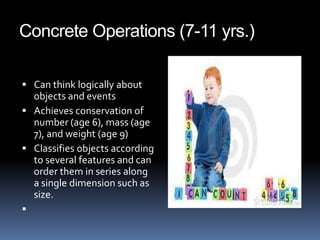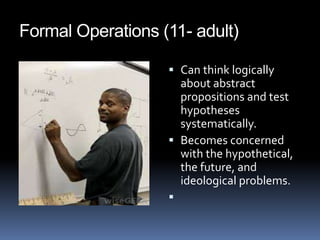Erik Erikson developed an 8 stage theory of psychosocial development that spans the entire lifespan. Each stage involves a conflict between opposing forces that influences development. The stages include trust vs mistrust in infancy, autonomy vs shame and doubt in toddlers, initiative vs guilt in preschoolers, and identity vs role confusion in adolescence leading to intimacy vs isolation in young adulthood and generativity vs stagnation in middle adulthood ending with integrity vs despair in late adulthood. Jean Piaget also studied cognitive development and identified 4 stages from sensorimotor in infancy to preoperational, concrete operations, and formal operations.
